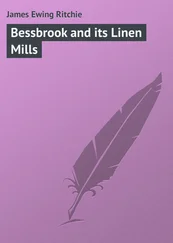James Ritchie - About London
Здесь есть возможность читать онлайн «James Ritchie - About London» — ознакомительный отрывок электронной книги совершенно бесплатно, а после прочтения отрывка купить полную версию. В некоторых случаях можно слушать аудио, скачать через торрент в формате fb2 и присутствует краткое содержание. Жанр: foreign_prose, на английском языке. Описание произведения, (предисловие) а так же отзывы посетителей доступны на портале библиотеки ЛибКат.
- Название:About London
- Автор:
- Жанр:
- Год:неизвестен
- ISBN:нет данных
- Рейтинг книги:4 / 5. Голосов: 1
-
Избранное:Добавить в избранное
- Отзывы:
-
Ваша оценка:
- 80
- 1
- 2
- 3
- 4
- 5
About London: краткое содержание, описание и аннотация
Предлагаем к чтению аннотацию, описание, краткое содержание или предисловие (зависит от того, что написал сам автор книги «About London»). Если вы не нашли необходимую информацию о книге — напишите в комментариях, мы постараемся отыскать её.
About London — читать онлайн ознакомительный отрывок
Ниже представлен текст книги, разбитый по страницам. Система сохранения места последней прочитанной страницы, позволяет с удобством читать онлайн бесплатно книгу «About London», без необходимости каждый раз заново искать на чём Вы остановились. Поставьте закладку, и сможете в любой момент перейти на страницу, на которой закончили чтение.
Интервал:
Закладка:
We have thus seen most of the newspaper people off the premises. As we go out into the open air, we may yet find a few of them scorning an ignoble repose. For instance, there is a penny-a-liner – literally he is not a penny-a-liner, as he is generally paid three-farthings a line, and very good pay that is, as the same account, written on very thin paper, called flimsy, is left at all the newspaper-offices, which, if they all insert, they all pay for, and one short tale may put the penny-a-liner in funds for a week. The penny-a-liner has long been the butt of a heartless world. He ought to be a cynic, and I fear is but an indifferent Christian, and very so-so as head of a family. His appearance is somewhat against him, and his antecedents are eccentric; his face has a beery appearance; his clothes are worn in defiance of fashion; neither his hat nor his boots would be considered by a swell as the correct stilton; you would scarce take him as the representative of the potent fourth estate. Yet penny-a-liner’s rise; one of them is now the editor of a morning paper; another is the manager of a commercial establishment, with a salary of almost a thousand a year; but chiefly, I imagine, they are jolly good fellows going down the hill. Charles Lamb said he never greatly cared for the society of what are called good people. The penny-a-liners have a similar weakness; they are true Bohemians, and are prone to hear the chimes at midnight. Literally, they take no thought for to-morrow, and occasionally are put to hard shifts. Hence it is sub-editors have to be on their guard with their dealings with them. Their powers of imagination and description are great. They are prone to harrow up your souls with horrors that never existed; and as they are paid by the line, a harsh prosaic brevity is by no means their fault. Occasionally they take in the papers. Not long since a most extraordinary breach of promise case went the round of the evening papers, which was entirely a fiction of the penny-a-liners. Yet let us not think disparagingly of them – of a daily newspaper no small part is the result of their diligent research. And if they do occasionally indulge in fiction, their fictions are generally founded on fact. The reader, if he be a wise man, will smile and pass on – a dull dog will take the matter seriously and make an ass of himself. For instance, only this very year, there was a serious controversy about Disraeli’s literary piracies, as they were called in the Manchester Examiner . It appears a paragraph was inserted in an obscure London journal giving an account of an evening party at Mr. Gladstone’s, at which Mr. Disraeli had been present – an event just as probable as that the Bishop of Oxford would take tea at Mr. Spurgeon’s. Mr. Disraeli’s remarks were reported, and the paragraph – notwithstanding its glaring absurdity – was quoted in the Manchester Examiner . Some acute reader remembered to have read a similar conversation attributed to Coleridge, and immediately wrote to the Examiner to that effect. The letter was unhandsomely inserted with a bold heading, – several letters were inserted on the same subject, and hence, just because a poor penny-a-liner at his wits’ end doctored up a little par, and attributed a very old conversation to Mr. Disraeli, the latter is believed in Cottonopolis guilty of a piracy, Cottonopolis being all the more ready to believe this of Mr. Disraeli, as the latter gentleman is at the head of a party not supposed to be particularly attached to the doctrines of what are termed the Manchester School. Really editors and correspondents should be up to these little dodges, and not believe all they see in print.
I would also speak of another class of newspaper people – the newspaper boy, agile as a lamp-lighter, sharp in his glances as a cat. The newspaper boy is of all ages, from twelve to forty, but they are all alike, very disorderly, and very ardent politicians; and while they are waiting in the publishing-office for their papers they are prone to indulge in political gossip, after the manner of their betters at the west-end clubs. On the trial of Bernard, the excitement among the newspaper boys was very great. I heard some of them, on the last day of the trial, confess to having been too excited all that day to do anything; their admiration of the speech of Edwin James was intense. A small enthusiast near me said to another, “That ere James is the fellow to work ’em; didn’t he pitch hin to the hemperor?”
“Yes,” said a sadder and wiser boy; “yes, he’s all werry well, but he’d a spoke on t’other side just as well if he’d been paid.”
“No; would he?”
“Yes, to be sure.”
“Well, that’s wot I call swindling.”
“No, it ain’t. They does their best. Them as pays you, you works for.”
Whether the explanation was satisfactory I can’t say, as the small boy’s master’s name was called, and he vanished with “two quire” on his youthful head. But generally these small boys prefer wit to politics; they are much given to practical jokes at each other’s expense, and have no mercy for individual peculiarities. Theirs is a hard life, from five in the morning, when the daily papers commence publishing, to seven in the evening, when the second edition of the Sun with the Gazette appears. What becomes of them when they cease to be newspaper boys, must be left to conjecture. Surely such riotous youths can never become tradesmen in a small way, retailers of greens, itinerant dealers in coal. Do not offend these gentry if you are a newspaper proprietor. Their power for mischief is great. At the Illustrated News office I have seen a policeman required to reduce them to order.
Finally, of all newspaper people, high or low, let me ask the public to speak charitably. They are hard-worked, they are not over-paid, and some of them die prematurely old. Ten years of night-work in the office of a daily newspaper is enough to kill any man, even if he has the constitution of a horse; one can’t get on without them; and it is a sad day for his family when Paterfamilias misses his paper. Whigs, tories, prelates, princes, valiant warriors, and great lawyers, are not so essential to the daily weal of the public, as newspaper people. In other ways they are useful – the great British naturalist, Mr. Yarell, was a newspaper vendor.
Читать дальшеИнтервал:
Закладка:
Похожие книги на «About London»
Представляем Вашему вниманию похожие книги на «About London» списком для выбора. Мы отобрали схожую по названию и смыслу литературу в надежде предоставить читателям больше вариантов отыскать новые, интересные, ещё непрочитанные произведения.
Обсуждение, отзывы о книге «About London» и просто собственные мнения читателей. Оставьте ваши комментарии, напишите, что Вы думаете о произведении, его смысле или главных героях. Укажите что конкретно понравилось, а что нет, и почему Вы так считаете.












